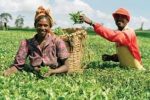Côte d’Ivoire is set to host the 2017 African Green Revolution Forum (AGRF), premier continental agriculture gathering that aims to improve agribusiness in Africa and use it for transforming the lives of hundreds of millions of people.
The West Africa country is chosen to host the Forum from September 4-8 September 2017 because it is a leading agricultural powerhouse and a hub of expertise in improving smallholder farming.
It is also chosen for its leadership in placing agriculture at the heart of its economic transformation. “Côte d’Ivoire is among a few select African countries that have made the biggest investments in agriculture resulting in sizeable increases in both farm productivity and overall economic performance. These countries provide a shining example of agriculture’s potential to turnaround the continent’s economic fortunes,” organizers of the Forum said.
Nairobi, Kenya was the host of last year AGRF. During the Nairobi meeting partners AGRA’s offices, the AGRF Partners Technical Group reiterated their collective commitment to the realization of “Malabo Commitments” to strengthen the agriculture sector in Africa, strengthen food security and improve nutrition by:
- Reducing Poverty by 50%
- Increasing youth employment in value chains by 30%
- Doubling agricultural productivity
- Increasing farmer resilience to climate change by 30%
- Reducing post-harvest losses by 50%; and
- Tripling inter-Africa trade
Under the leadership of President Alassane Dramane Ouattara, the AGRF 2017 will focus on Accelerating Africa’s Path to Prosperity: Growing Economies and Jobs through African Agriculture. Mamadou Sangafowa Coulibaly, Minister of Agriculture and Rural Development, Côte d’Ivoire, emphasised his country’s commitment to continually improve the agricultural sector which is key to its economic development.
“Five years of significant investments through the National Agricultural Investment Plan have enabled the country to empower farmers and place them at the heart of Côte d’Ivoire’s economic transformation.,” the Minister said.
“The first phase of the NAIP contributed to a significant boost in our agricultural production, with more than 17 million tons of food crops in 2015 compared to 11,886 million tons in 2012. We are delighted to see that our efforts are being recognized internationally,” he said.
Phase 2 of the NIP, based on a more integrated approach that includes water resources management, health, electricity and education, will help to lift farmers out of poverty and further stimulate our economy. Côte d’Ivoire is committed to developing its agricultural economy, this needs to be consolidated, according to the Minister.
Agriculture is the backbone of Côte d’Ivoire’s economy and its robust growth is driven by sustained investment in agriculture and smallholder farmers. The sector contributes 26 percent of GDP, 40 percent of all export revenue, close 75 percent of non-oil export revenue and employs close to 60 percent of the population. The 2016-2020 National Development Plan (PND) aimed at guiding the country into emerging nation status by 2020, considers agriculture as a key pillar and specifically calls for an increase in agricultural output.
“Agriculture is now back at the top of Africa’s development agenda as an economic driver for inclusive and sustainable development. After Seizing the Moment at AGRF 2016 and securing political, policy, and financial commitments of more than $30 billion. As agriculture is the surest path to Africa’s prosperity, we now need to harness this surge of support for agriculture and ensure it creates decent jobs and drives economic growth across the continent,” said Agnes Kalibata, President of the Alliance for a Green Revolution in Africa (AGRA).
Similar sentiments were echoed by the President of the African Development Bank, Akinwumi Adesina. Highlighting the Bank’s prioritization of the agriculture sector against its $24 billion Feed Africa strategy, Adesina said “Through its Feed Africa Strategy, the African Development Bank will raise its financing of agriculture to over $24 billion in the next 10 years”.
Adesina also noted that AGRF 2017 will bring together stakeholders in the African agricultural landscape to share lessons on countering the challenges being experienced in the agricultural sector across the African continent. The forum, expected to host African Heads of State, ministers, farmer organizations, private agribusinesses, financial institutions, researchers, development partners, and implementing organizations, will provide a platform where delegates can discuss and advance policies, programmes, and scalable investments for the enhancement of agricultural transformation and food security.

